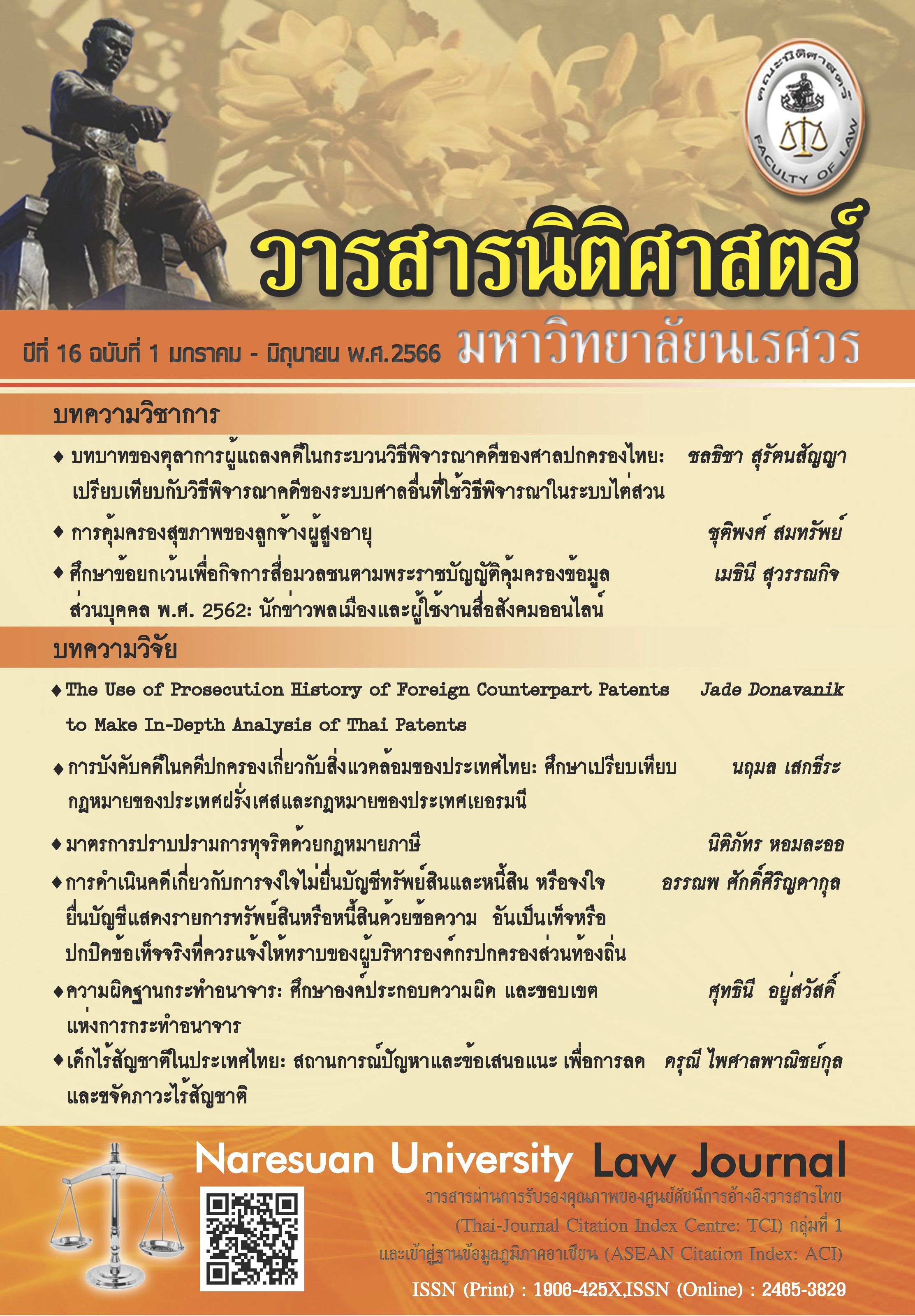Study of the Exceptions to Journalism Under the Personal Data Protection Act B.E. 2562: Citizen Journalist and Social Media Users
Main Article Content
Abstract
While citizen journalists and social media users have played a vital role in driving public matters and encouraging citizen participation in a democratic society, the significance of privacy and personal data protection has been progressively recognised in Thailand. In 2019, Thailand’s Personal Data Protection Act B.E. 2562 was enacted. Several rules and safeguards are provided by the new Act to protect personal data. According to section 4(3), the use or disclosure of personal data for journalistic purposes is exempt from the Act. The journalism exception does, however, raise some questions and uncertainties. Particularly, it is questionable whether the journalism exception could apply to those citizen journalists and social media users. This article therefore examines the meaning of journalist activities and the extent of the journalism exception in the EU General Data Protection Regulation. It is found that the journalism exception has been
interpreted broadly in the EU. Irrespective of the professional journalist status, the journalism
exception could apply to citizen journalists or social media users if they perform journalist activities. Nonetheless, there are some uncertainties in this area. The article suggests that the relevant journalistic activity must satisfy two criteria to be entitled to the journalism
exception: first, it must be able to communicate with the general public and have the intention of doing so; and secondly, it must involve matters of public interests that outweigh the needs for personal data protection. The types of speech or information is the key factor when striking a balance between the protection of privacy and freedom of expression.
Article Details
References
Barendt, Eric. “Privacy and Freedom of Speech.” In New Dimensions in Privacy Law: International and Comparative Perspectives, edited by Andrew T Kenyon and Megan Richardson, 8-20. Cambridge: Cambridge University Press, 2006.
Boonyarat Chokebandanchai. Journalism Law: Protection of Privacy Rights and Reputation. Phitsanulok: Naresuan University, 2015 [in Thai]
Fuster, Gonzalez, Gloria, The Emergence of Personal Data Protection as a Fundamental Right of the EU. Switzerland: Springer International Publishing, 2014.
Gavison, Ruth. “Privacy and the Limits of Law.” The Yale Law Journal 89, no. 3 (1980): 421-471.
Nagel, Thomas. “Concealment and Exposure.” Philosophy & Public Affairs 27, no. 1 (1998): 3-30.
Phillipson, Gavin. “Press Freedom, the Public Interest and Privacy.” In Comparative Defamation and Privacy Law, edited by Andrew T Kenyon, 136. Cambridge: Cambridge University Press, 2016.
Rowbottom, Jacob. Media Law. UK: Hart Publishing, 2018.
Voigt, Paul and Bussche, Von Dem, Axel, The EU General Data Protection Regulation (GDPR) A Practical Guide. Switzerland: Springer International Publishing, 2017.
Wall, Melissa. “Citizen Journalism: A retrospective on what we know, and agenda for what we don’t.” Digital Journalism 6, no 3 (2015): 797-813.
Wong, Benjamin. “The Journalism Exception in UK Data Protection Law.” Journal of Media Law 12, no.2 (2020): 216-236.
Wragg, Paul. “Protecting Private Information of Public Interest: Campbell’s Great Promise, Unfulfilled” Journal of Media Law 7, no. 2 (2015): 225-250.


